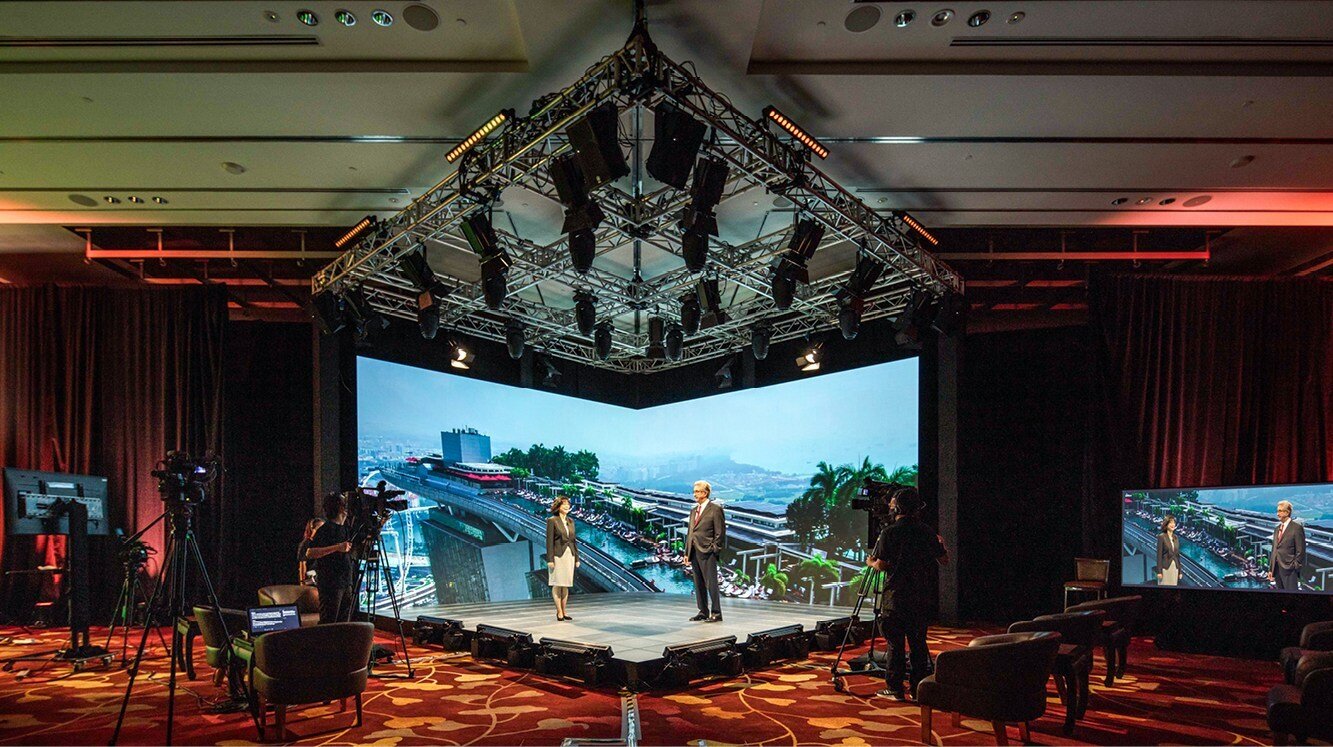Virtual V.S Physical Events: Which Is Better?
We have previously touched on the topic of the continuation of events despite this pandemic, and how virtual events can serve as a viable alternative. This week, we will do up a comparison between virtual and physical events, in which you can evaluate which model is more suitable for your company’s events.
Throughout the article, we will be breaking down the following factors to compare both models:
Scalability
Interactivity
Pricing
Atmosphere
Scalability
Before we go into detail about budgeting and planning for the event, there should be considerations on the scalability of the event. The scope consists of the number of attendees for the event and the size of the venue space.
As we all know, there are limited spaces in Singapore. You can count with your fingers, on the possible venue spaces to hold events that go up to thousands of attendees. Whereas you can invite as many people for your event if you were to hold it on a virtual platform.
Round 1 goes to Virtual Events.
Interactivity
Be it a formal setting like conference events, or recreational events like dinner and dance, there will always be human interactions. Interactions can come in many ways. We often see guests participating in activities like photo booth together, or mingling around for networking purposes.
For a virtual event, there can be breakout rooms arranged on the platform to facilitate these side activities. However, only physical events can provide a personal touch for human interactions as they interact with each other in a face-to-face setting.
Engaging in meaningful conversations, or getting to know a potential working partner personally is important for human interactions. These will never be recreated in a virtual setting.
Therefore, Physical Events take Round 2.
Pricing
Budget is one of the most important factors in event planning, and it will be a constant factor that your company’s management will ask to evaluate from time to time.
So the difference between a virtual event and a physical event is the significant costs that a physical event brings along. Things like venue rental, food catering, and equipment will cause the company to incur a significant cost when planning for a physical event.
Whereas if the company is to plan for a virtual event instead, they can make do without the above-mentioned costs, while still meeting the objectives of the event. It will also help to make event planning more cost-effective if the company is planning to invite guests from overseas. Taking your event to the virtual platform can allow your overseas guests to join in the event, and there will be no need to incur costs like hotel accommodation and flight tickets
With this, Virtual Events take Round 3.
Atmosphere
The objective of organising an event, especially a recreational event, is to create a wholesome fun and immersive experience for your guests. The euphoria that your guests experience during the events, through activities and games, is something that only exists in a physical event.
Heading to an event with exquisite decorations, engaging in exciting activities, and having fun with other attendees, these are moments that you can only enjoy in a live setting.
While a virtual event can be innovative in many ways, the experience you get does not translate the same, compared to a physical event.
The last round goes to Physical Events.
As such, the benefits of the respective models discussed are summarised as below:
Scalability (Virtual Events)
Interactivity (Physical Events)
Pricing (Virtual Events)
Atmosphere (Physical Events)
At the end of the day, there is no right answer as to which model of an event is the better one. Thankfully, our industry has taken a step forward in creating the ‘best of both worlds’, in the form of a hybrid event, as announced recently.
So what is a hybrid event? It is a virtual event, which has a small number of guests attending events physically. Of course, these would be carried out according to the guidelines of the SG SafeEvent Standard, with safe distancing among participants and various safety measures taken.
Photo credits goes to Marina Bay Sands & Biz Events Asia
Photo & Video credits goes to Singapore Expo & Straits Times
And we do hope that our analysis in this article can assist you in your decision making. However, if you are still asking some questions, feel free to ask for our advice by clicking here. We will be gladly assisting you!








